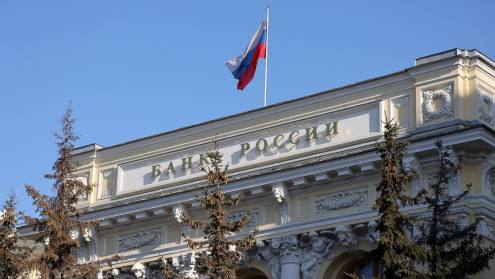When thousands of Ukrainian citizens took to the streets of Kiev during 2014’s Revolution of Dignity, they unleashed some of the biggest changes – both good and bad – since the country's independence in 1991. In a short space of time they have seen the removal of a kleptocratic government, which had more than doubled our national debt; the illegal annexation of Crimea; a devastating invasion by Russia and ongoing conflict; a painful economic recession and financial crisis; the election of the first parliament with a pro-European constitutional majority; and the formation of a new government with an average age of 43 and most ministers coming directly from the private sector.
As well as the economic crisis and debt restructuring issue that have dominated headlines for months, there is another revolution taking place in Ukraine – a quiet revolution of reform reshaping the fundamentals of our economy. Our government’s plan to return to economic growth and prosperity is based on the twin pillars of macroeconomic stabilisation and creating the right conditions for businesses to prosper.
The challenges facing our new government are to undo decades of economic mismanagement, poor governance, institutional corruption and irresponsible spending – all the while fighting a devastating and ongoing conflict on our territory. With so many challenges to face, we launched the most ambitious reform programme in Ukraine’s history, supported by a $17.5bn macroeconomic stabilisation package from the International Monetary Fund with additional funding from other international partners.
Ukraine’s journey back to growth is multi-dimensional and requires deep reform across a number of sectors and areas.
Banking sector
Ukraine had an unhealthy and overbanked financial system that was badly exposed in the economic crisis. Since the beginning of 2014, more than 50 of our 178 banks have become insolvent. When the current government came into power, we saw that this sector required an overhaul to increase its efficiency and strengthen protection measures for depositors and taxpayers alike. Accountability and trust are crucial for a credible banking sector and our reform package included a raft of new legislation and regulations designed to provide a stronger and healthier system.
New laws on related party lending allow owners and the management of banks to be prosecuted for actions that result in bankruptcy. We have reduced the time, from three months to one month, taken to remove bad banks from the market. By transferring their assets and liabilities to healthy counterparts, we are giving account holders of bad banks full access to their savings more quickly. This mechanism was used for the first time with the transferring of the assets and liabilities of Kyiv Bank to the state-owned Ukrgazbank and in June this year, account holders of Kyiv Bank gained unlimited access to their savings at Ukrgazbank.
The protection of ordinary depositors is essential to restoring confidence and we have changed the order of creditors' demands to reflect this, making related party’s lenders last in the line of demands.
Budgetary reforms
Our fiscal policy has been a balancing act – we have worked hard to secure Ukraine’s medium-term economic future while continuing to fight Russian aggression in the east and ringfence our defence spending at 5% of gross domestic product [GDP]. The 2015 budget provided a moderate deficit of 4.1% of GDP, and we are looking to reduce this to 3.75% next year. We slashed state funding for Naftogaz, Ukraine’s national oil and gas company, from $10bn to $1.5bn in just one year and our goal is to wipe this out completely by the end of 2016. This has helped to substantially reduce the public administration deficit from 11.6% of GDP in 2014, to an expected 8.8% of GDP this year. We have achieved this despite suffering a collapse of 15.2% in GDP year on year in the last quarter of 2014, and in the face of a continuing brutal and costly conflict.
This fiscal consolidation has been balanced with targeted spending to meet our citizens’ social needs. Reforming our social support system does not focus only on a reduction in spending, and we have provided increased support to the most vulnerable groups in society, all the while making sure that welfare payments, pensions and public sector salaries are paid in full and on time. Our budget is also providing direct subsidies to compensate for necessary increased gas and heating tariffs. In total, Hrv24.4bn [$1.1bn] has been assigned for that relief in 2015.
Ukraine has undergone ‘fiscal decentralisation’ by delegating more fiscal and decision-making powers to local government. Decentralisation aims to increase the efficiency of the budgetary system and our work has already increased the resource base of local budgets by more than 37%, year on year. Economically active communities have already reaped the rewards and retained a major part of their revenues.
Tax reform
Ukraine’s opaque and overly complex tax regime left loopholes and copious opportunities for tax avoidance. Our government is tackling these problems head on and has reduced the number of taxes from 22 to 11. By introducing electronic administration of value-added tax [VAT] reimbursement we are tightening the noose on those attempting to avoid paying their fair share. Previously, VAT fraud alone cost Ukraine upwards of $1bn in 2014, and previous governmental inaction has led to a culture of impunity. We are enforcing the obligatory use of cash registers for entrepreneurs with annual revenues of more than Hrv1m. The signing of international agreements with Ireland on double taxation and Cyprus on preventing offshore capital flight shows we are focused on longer term solutions and not quick fixes.
Our state fiscal service has long been a source of complaint for ordinary citizens. Its restructuring will provide better management of our ongoing efforts to expand the tax base, reduce the opportunity for tax avoidance and corruption, and bring more of our economy out of the shadows.
Our entire government recognises that for Ukraine to become an attractive investment destination, we need to work with stakeholders – from the business community to civil society – encouraging greater openness and exchanges of views. Indicative of this new approach is how we worked with the business community to halve the fiscal burden on gas royalties. Tax rates were halved from 55% to 28% for fields with a depth lower than 5000 metres, and from 29% to 14% for fields with depth more than 5000 metres. This will be complemented by the introduction of a royalty rate for new gas fields, which has been reduced to 10% from 20%, starting from January 1, 2016, as well as a corporate tax rate of 30%. Not only will this encourage more energy sector investment, it will also address and improve Ukraine’s energy security.
We are also completely overhauling our tax system later in 2015 – re-writing the tax code and reforming the administration. Our goal is to reduce the burden on payroll, facilitate a level playing field for businesses and to simplify the process.
Anti-corruption moves
Corruption has been the scourge of Ukraine for decades, and eliminating it is one of our top priorities. In our energy sector, shady intermediaries who once dominated the sector and corruptly diverted public resources for years were removed immediately. Earlier this year, household tariffs were raised by more than four times on average, alongside introducing a new system of direct subsidies for the poor. These tariffs will be brought to full cost recovery within 18 months. For the first time in decades, we have a government braced for this extremely painful and politically sensitive move that will stamp out fraudulent schemes rooted in subsidised gas prices. This is an important development for energy efficiency and tackling corruption, but also for increasing our energy security.
The creation of a National Anti-Corruption Bureau aims to investigate all levels of officials, to show that no one is above the law, including former presidents. Furthermore, Ukraine’s new prosecutor general has already charged more than 3000 people.
As e-procurement is being rolled out across the government, we have greater and more regular online publishing of ministerial figures, documents and key appointment and recruitment processes. All of these measures are firsts in transparency and anti-corruption for Ukraine.
A brighter future
The people of Ukraine demanded a brighter future, and the country's quiet revolution of reform is delivering. It is reshaping our institutions, our engagement with ordinary citizens, and providing oxygen to our business communities.
Our job in government is to create a level playing field for businesses and individuals to thrive. Through macroeconomic stabilisation and fundamental reforms we are making progress.
Our goal is to return to positive economic territory in 2016. Any sustainable recovery must be driven by the private sector, with both domestic and international investors and businesses creating a more prosperous, transparent and just economy. Our government is serious about reforms, and ensuring Ukraine’s prosperity is one all can share in.
Natalie Jaresko is the finance minister of Ukraine.












